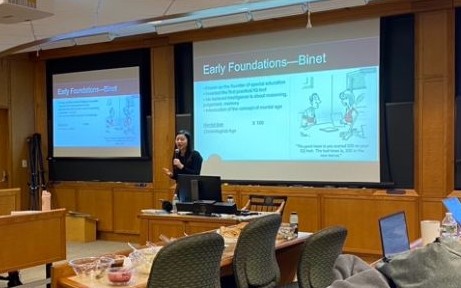Current RMME Master’s student (and Giftedness, Creativity, and Talent Development PhD student), Lihong Xie, gave an excellent guest presentation at Harvard University this March. Lihong visited Harvard’s Child/Adolescent Cognitive & Psychological Assessment class to speak and lead an engaging conversation about assessing youth intelligence and creativity.

